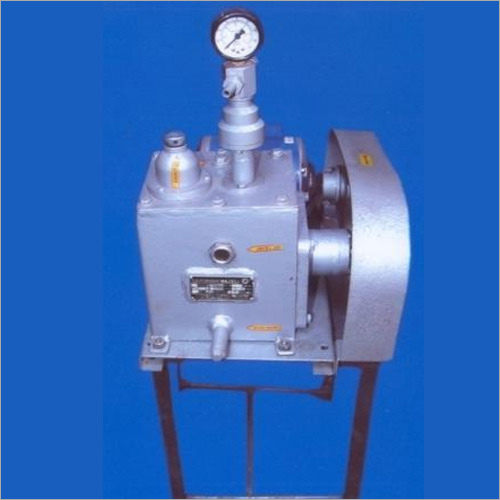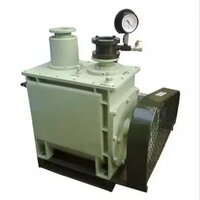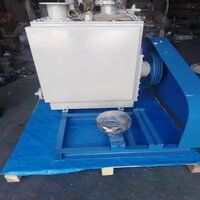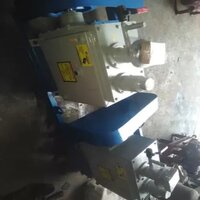Vacuum Pumps For Electroplating Industry
25000 INR/Piece
Product Details:
- Color Sliver
- Usage Industrial
- Theory Vacuum Pump
- Voltage 220 Volt (v)
- Material Mild Steel
- Power Electric
- Fuel Type Diesel
- Click to View more
X
Vacuum Pumps For Electroplating Industry Price And Quantity
- 25000 INR/Piece
- 1 Piece
Vacuum Pumps For Electroplating Industry Product Specifications
- Industrial
- Mild Steel
- High Pressure
- Sliver
- Vacuum Pump
- Electric
- Submersible
- 220 Volt (v)
- Diesel
Vacuum Pumps For Electroplating Industry Trade Information
- 10 Piece Per Day
- 1 Week
Product Description
Leelam Industries is one of the best manufacturers, suppliers, and exporters of industrial Vacuum Pumps For Electroplating Industry that is commonly used to make uniform galvanized coating over metallic and alloyed materials. The structural frame of this unit is fabricated by using top-grade engineering materials that impart high strength and rigidity to bear extreme working conditions. The whole unit is mounted on a sturdy support frame to provide high stability. Buy from us top-grade Vacuum Pumps For Electroplating Industry as per your demands with an assurance of fast and safe delivery.
Vacuum Pumps For Electroplating Industry Features:
- Chemical Compatibility
- High Vacuum Levels
- Efficient Gas and Moisture Removal
- Reliable Sealing
- Precise Vacuum Control
- Fast Evacuation Time
- Versatile Applications
- Compact Design
- Energy Efficiency
- Easy Maintenance
- Safety Features
Vacuum Pumps For Electroplating Industry Benefits:
- Enhanced Plating Quality
- Improved Adhesion
- Faster Plating Process
- Consistent Plating Results
- Reduction in Defects and Waste
- Ease of Operation
- Cost-Effective Solution
FAQ for Vacuum Pumps For Electroplating Industry:
Q: What are vacuum pumps used for in the electroplating industry?
A: Vacuum pumps are used in the electroplating industry for variegated applications, including descaling, degassing, drying, and creating a vacuum environment for the electroplating process. They help in removing impurities, improving adhesion of the plating material, and also enhancing the overall quality and consistency of plated surfaces.
Q: What types of vacuum pumps are commonly used in the electroplating industry?
A: The electroplating industry commonly uses vacuum pumps such as liquid ring pumps, rotary vane pumps, and dry screw pumps.
Q: What are the advantages of using vacuum pumps in the electroplating industry?
A: Some advantages of using vacuum pumps in the electroplating industry include:
- Improved plating quality and consistency
- Effective removal of gases, impurities, and moisture
- Enhanced adhesion of plating material to the substrate
- Reduced defects and porosity in plated surfaces
- Faster drying times for plated objects
- Ability to create a controlled vacuum environment for the electroplating process
- Increased efficiency and productivity in plating operations
Q: Can vacuum pumps handle corrosive chemicals used in the electroplating process?
A: Vacuum pumps for the electroplating industry can be designed for handling corrosive chemicals. They have protective coatings, corrosion resistant materials, or specialized seals to ensure compatibility and longevity when working with corrosive plating solutions.
Q: What maintenance is required for vacuum pumps in the electroplating industry?
A: Regular maintenance is essential for optimal performance of vacuum pumps in the electroplating industry. This may include tasks such as replacing and checking worn out components, monitoring and changing lubricant or oil, inspecting seals, cleaning filters, and addressing any leaks or malfunctions promptly.
Q: Are there any safety considerations when using vacuum pumps in the electroplating industry?
A: Yes, safety considerations when using these vacuum pumps include proper handling and containment of plating chemicals, compliance with the electrical safety guidelines, and the use of appropriate ventilation and fume extraction systems to ensure a safe working environment.
Q: Can vacuum pumps be customized for specific electroplating process requirements?
A: Yes, vacuum pumps can be custom made or selected based on specific electroplating process requirements. Factors to consider include airflow capacity, desired vacuum level, compatibility with plating chemicals, size and type of objects being plated, and other process specific considerations.
Q: Can vacuum pumps be used for both small-scale and large-scale electroplating operations?
A: Yes, vacuum pumps can be used for small as well as large scale electroplating as we offer these pumps in a wide range of sizes and capacities. The selection of the pump depends on the volume of plating work, the size of the plating equipment, and the desired plating quality and efficiency.
Tell us about your requirement

Price:
Quantity
Select Unit
- 50
- 100
- 200
- 250
- 500
- 1000+
Additional detail
Mobile number
Email










